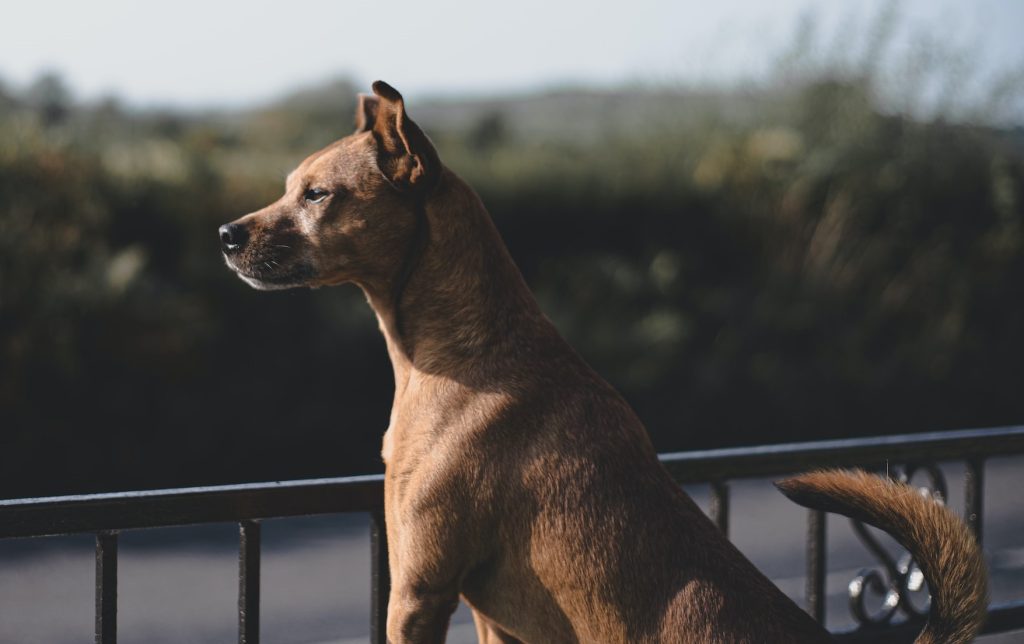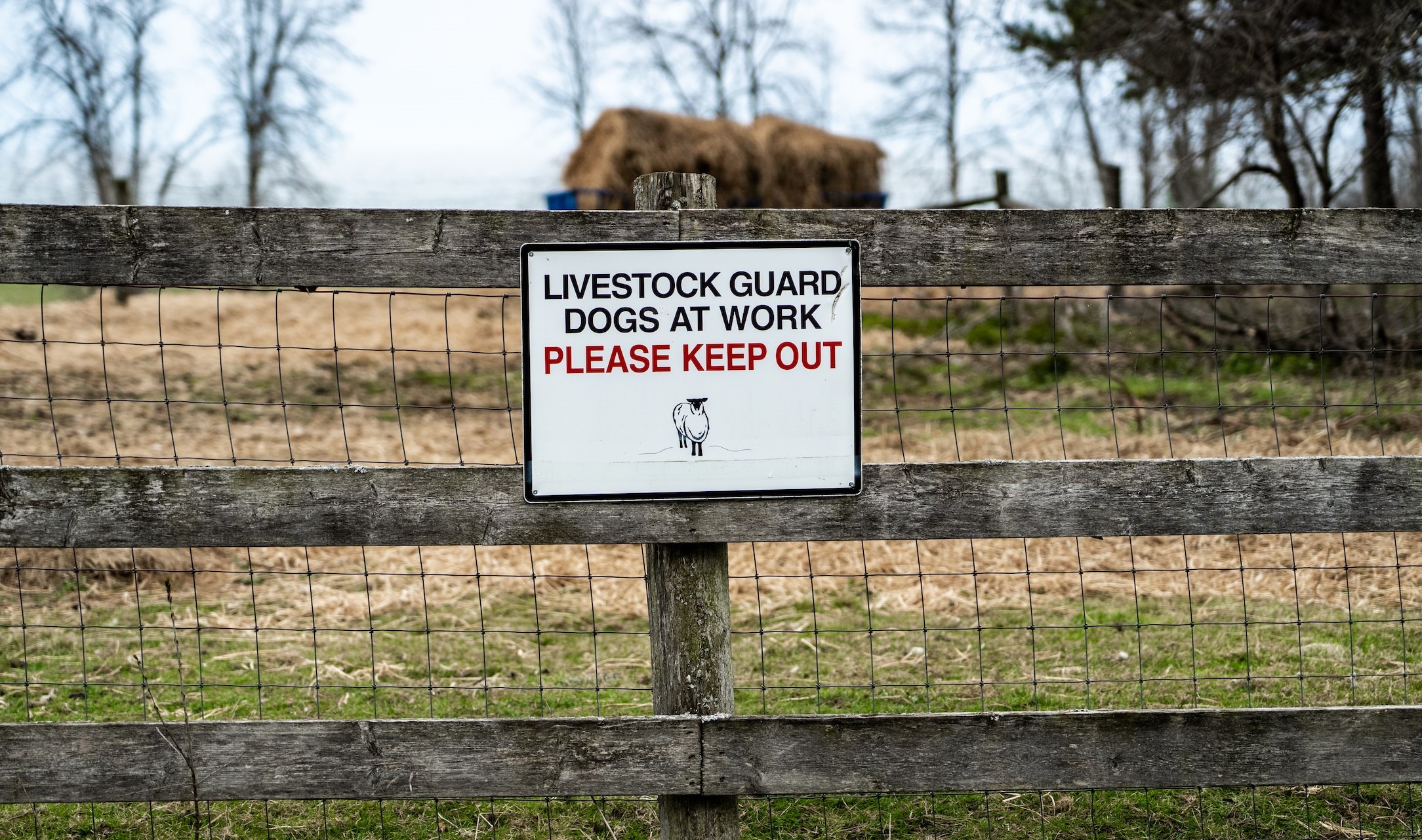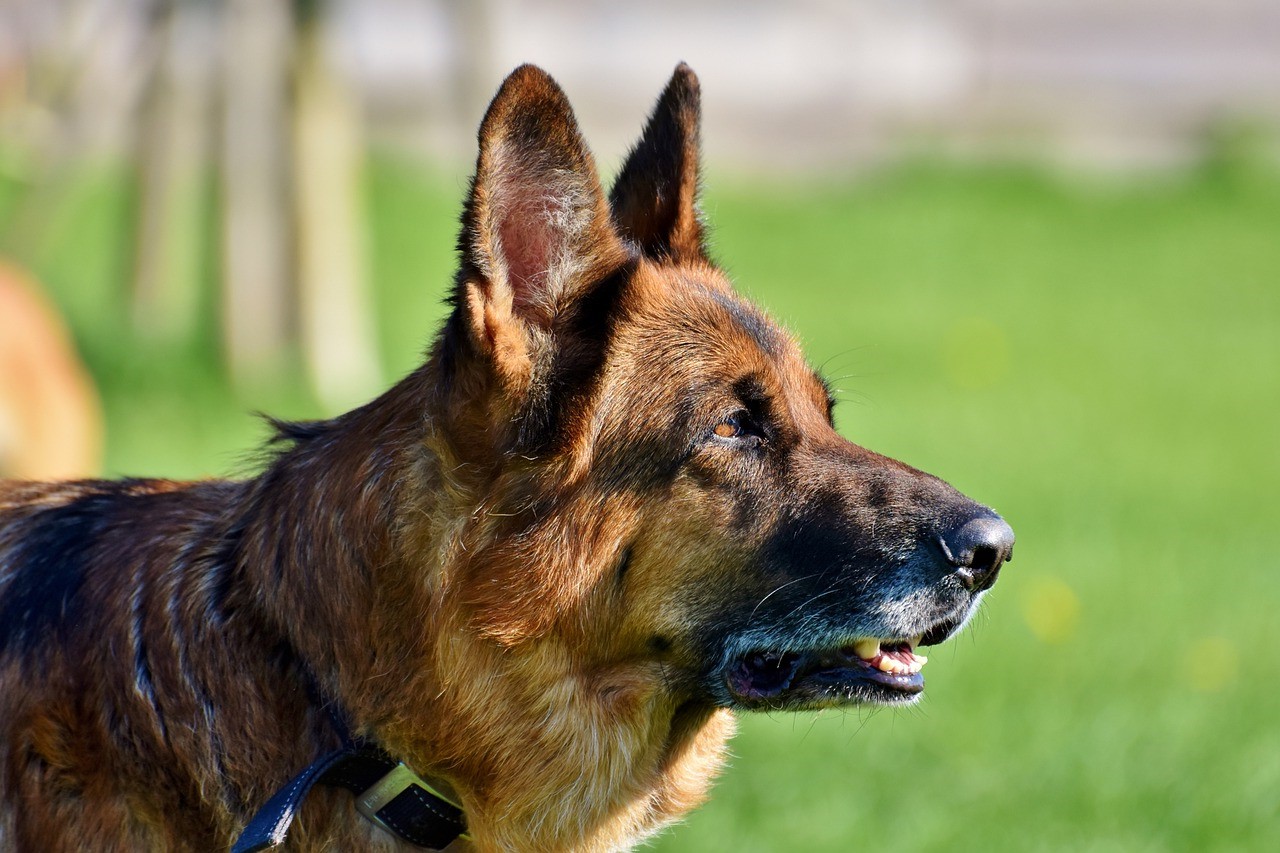Table of Contents

Disclaimer: I am not a vet, but an enthusiastic pet owner with a diverse knowledge of dogs, cats and other pets. Writing well researched articles recommending dog friendly products to in-depth guides. Please seek a certified vet for a professional opinion on your dog, these articles are written from my own research and opinions. Please read our Terms and Conditions for more! As an Amazon associate I earn from qualifying purchases.
Guard dogs have been trusted companions and protectors for centuries, and their presence is increasingly sought after in modern society due to increasing levels of crime. Data from the UK has shown that breaks-ins and burglaries are 67% less likely to happen if a loud barking dog is present.
But, owning a guard dog comes with responsibilities and considerations to ensure the safety of both the dog and the community.
This article serves as a comprehensive guide for those interested in owning a guard dog in the UK, exploring the legal aspects, training requirements, and the benefits of responsible ownership.
What is a guard dog?
A guard dog is a trained canine which is bred specifically for security or protective services. Guard dogs are however not sociable animals and rarely live in houses as they are known as “working dogs”. These dogs play a crucial role in deterring potential intruders and providing an added layer of security.
Guard dogs are usually trained to protect certain locations or areas and are rarely used to protect humans directly. Guard dogs are normally operated by businesses to protect their premises or security companies, but are sometimes used on private land and farms too.

Credit Unsplash.com User @unkown
When it comes to owing a guard dog in the UK, breed choice along with legal responsibility is important.
Popular breeds such as German Shepherds, Belgian Malinois, and Rottweilers are often preferred due to their protective instincts, intelligence, and physical capabilities.
However, it is essential to be aware of and comply with local laws and regulations regarding dog ownership and control. Certain breeds may require special exemptions or additional precautions due to their characteristics. But don’t worry, I go more into detail on ownership later on!
What is a protection dog?
Unlike a guard dog – which is usually secures one location, a protection canine is a highly skilled dog, trained to protect you and your family from dangerous situations or threatening circumstances on the move or at home. A protection dog has the ability to transform into a guardian on command. Whilst still being a sociable family pet. Protection dogs are trained with their families directly to build a strong relationship from a young age.
Violence against the public has quadrupled in the last decade. With new data suggesting over 2 million violent crimes were recorded in England and Wales in 2022. Leading to families finding new ways to protect themselves against violent crime. That’s where protection dogs come in.
Protection dogs integrate with your family and learn your behavior while providing an added layer of security, it is crucial to remember that their purpose is to deter and protect, rather than actively seek out confrontations. Protection dogs are not aggressive.
This video courtesy of Dogs Now, shows how protection dogs can change their behavior with commands. The simple command “guard” switches your sociable family pet into a guard dog which never leaves your side. Protection dogs are remarkable really.
How long does a protection dog take to train?
Protection dogs are usually trained from a young age over months and in some cases years. Expert dog trainers and specialist programs are aimed at developing the dog into a protector.
However, dogs require a strong bond and relationship with the expert to make good progression and it’s not uncommon for specialist training to take many years.
Best protection dog breeds?
Various breeds can be used for protection dogs, each with its own set of characteristics and traits. Popular breeds for protection work include:
- German Shepherd
- Belgian Malinois
- Doberman Pinschers
- Rottweilers
- Bullmastiffs
Similarly to guard dogs these breeds are chosen for their natural instincts, intelligence, agility, and physical strength, making them well-suited for the role of protection dogs.
What is the difference between a guard and protection dog?
When deciding between a guard dog and a protection dog it’s important to understand the purpose. Protection dogs are trained to be just like pets, which are sociable, family dogs. Protection dogs are trained to extremely high standards and are designed to keep your family and loved ones safe through commands and intelligent thinking.
Essentially like bodyguards, protection dogs follow your every move and only react to trouble after certain commands are given. When they aren’t in “guardian mode” they are just as playful as normal dogs. But this ability comes at a cost, protection dogs can be expensive due to the hours of expert training that goes into them.
Whereas guard dogs are not pets, they are trained to be dominant, slightly aggressive and anti-sociable. Guard dogs are mostly used on properties to deter criminals from entering, or used by security companies guarding business or points of interest.

Credit Pixabay.com User @unkown
Why/who should get a guard dog?
There are several reasons why individuals and businesses look into getting guard dogs. Private home owners with large gardens or fields might gain the most from ownership. But here are some more reasons:
- Protection against Intruders: Guard dogs can serve as a visible deterrent against potential intruders. The presence of a well-trained guard dog can discourage burglars or trespassers from even targeting a property, as they are aware of the risks associated with an aggressive guard dog. It’s just not worth their time!
- Property Security: Guard dogs can help protect valuable property, such as estates, company offices, or warehouses, where security is important. Their presence and active patrolling can deter unauthorised access, vandalism, or theft.
- Specific Professions: Guard dogs are often employed in professions that require security measures. This can include the police or private security firms.
Guard dogs advantages Vs disadvantages?
I’ve compiled a small list of advantages and disadvantages of guard dog ownership.
Advantages
- Enhanced Security: A well-trained guard dog can act as a deterrent to potential intruders and burglars. Their presence alone can discourage criminals from targeting your property.
- Alertness and Early Warning: Guard dogs have heightened senses and can detect suspicious activities or noises that humans may not notice. They can alert you to potential threats by barking or making noise.
- Protection for Family Members: A guard dog can provide a sense of security for your family members, especially when you are away from home. Knowing that a trained dog is watching over your home can alleviate stress.
Disadvantages
- Legal Restrictions: The UK has specific regulations concerning the ownership and control of certain breeds categorised as “dangerous dogs.” Owning certain breeds are not allowed and/or may require additional permits or insurance, and failure to comply with regulations can result in legal consequences.
- Responsibility and Commitment: Owning a guard dog comes with significant responsibilities. Like all dogs they require regular exercise, mental stimulation, and proper care, including feeding, grooming, and medical attention.
- Liability and Insurance: If your guard dog causes harm to others or damages property, you may be held legally responsible. It is crucial to have appropriate insurance coverage to protect yourself financially in case of any unfortunate incidents.
Before deciding whether a guard dog is right for you, it’s essential to thoroughly research the breed, consult with professionals, and consider your specific circumstances..
Can I own a guard dog in the UK?
The short answer is yes, you can own a guard dog and allow dogs to protect your home in the UK. According to the Guard Dogs Act 1975, a person (handler) can keep a guard dog providing you are capable of controlling and securing the dog at all times.
It’s important to note that if you intend to use a guard dog at any premises, you must have a notice warning that a guard dog is present. This should be labelled at each entrance to the premises. But do check up on the Government website if the law does change and remember this is not lawful advice.
What makes a good guard dog?
A good guard dog has natural guarding instincts, remaining alert and vigilant at all times. These instincts drive the dog to be constantly aware of its surroundings, ready to respond to any potential threats. Whether it’s protecting property or designated areas.
Intelligence and train-ability are key qualities that contribute to a good guard dog. A dog that is intelligent and trainable is easier to handle and can quickly learn and understand complex tasks and commands. This allows the dog to effectively respond to instructions from its handler with precision and reliability.
Courage is an important characteristic in a good guard dog. When faced with potential dangers, the dog must remain calm and composed, whilst displaying some form of aggression (but not out of control aggression) and bravery. A fearless and intelligent guard dog shows no hesitation in confronting threats.
What are the best guard dog breeds?
Choosing the right breed as your guard dog is incredibly important. After a recent spike in first time buyers of guard dogs, it’s important, you as an owner are able to handle the breed.
Some dogs have natural instincts to guard and defend. Guardian breeds are usually intelligent, athletic and loyal. All types of Shepherd dogs are a good start as they tend to be fearless and strong. All breeds need training, but some more than others. Here is a full list of breeds which best suit the guard dog role.
The most popular breeds for protection/guard dogs in the UK are the German Shepherd, Rottweiler, Belgian Malinois and the Doberman. These are the breeds you will find most often for sale.
Staying away from aggressive breeds
Although in some ways guard dogs are bred to be aggressive in nature, some dog breeds are naturally more aggressive than others whether that be influenced by a combination of genetic predisposition, individual temperament, and socialisation. But aggressive dogs don’t make good guard dogs.
Plus, it’s important to note, that some of these aggressive breeds are banned in the UK regardless if they are being kept as guard dogs or not.
Banned dogs in the UK include these breeds:
- Pit Bull Terrier
- Japanese Tosa
- Dogo Argentino
- Fila Brasileiro
It’s also against the law to:
- sell a banned dog
- abandon a banned dog
- give away a banned dog
- breed from a banned dog
It’s worth staying on top of the law and making sure you understand it before purchasing a guard dog. For the full information on banned dogs, you can view the government site here. This is of course not legal advice.
Where can I find a beware dog sign?
As we’ve learned before, if you are considering getting a guard dog on your property you must be aware of the law. The law in the UK states: “A person shall not use or permit the use of a guard dog at any premises unless a notice containing a warning that a guard dog is present is clearly exhibited at each entrance to the premises.”
So you need a sign, which is clearly visible at entrances when a guard dog is present. But where can you buy beware dog signs? They are quite common and you can find them online for less than £10. Here is an example from AB tools, an “old style” Beware of the dog sign. Or something more modern, a warning sign labeling your dog is not responsible for injury. But remember, I’m not a lawyer, so do seek professional counseling if you are considering getting a guard dog.
Are guard dogs worth it?
Ultimately, whether guard dogs are worth it or not depends should primarily be based on the security needs of your business or private house. Guard dogs are a great security feature (for your own private home) when placed with other layers of security, like for example a camera set up, Ring door bell and even a full smart home security system.
Assess the level of risk and vulnerability associated with your location. If you are situated in an area with a high crime rate or have valuable assets that need protection, guard dogs can be an useful and efficient security measure. Their presence alone can act as a deterrent to potential intruders, making criminals think again before trying to break in. Plus, its a well known fact criminals do avoid breaking into houses with dogs.
FAQ
Q: How much do protection dogs cost?
Protection dogs usually start between £10,000-£15,000. But in some cases can be more expensive. Expert trainers like AT Family Protection dogs also include upkeep/training sessions every 6 months (free of charge) for 2 weeks to ensure your dog continues to respond to a high standard.
Q: Where can I buy a protection dog?
There are specialist protection dog kennels around the UK which sell highly trained dogs. Like protectiondogs.co.uk.
Q: What is the most popular breed of guard dog?
The most popular guard dog breed is between the German Shepherd and the Belgian Malinois, both breeds are similar in size, intellect and physicality. Malinois tend to have shorter hair and are all round “healthier” dogs, but German Shepherds’ are usually bigger and therefore stronger.
Q: Are guard dogs the same as protection dogs?
No, protection dogs are highly trained family pets which use commands to transform into guardians. Guard dogs are usually used by security companies, the police or private home owners to guard specific sites and scare off potential intruders. Protection dogs behave like normal pets but during dangerous environments can protect your family on the move with special commands, almost like a bodyguard.
Q: Can you leave a guard dog on your property chained up?
The UK law states, that a guard dog should be kept under control by it’s owner (handler) at all times. Except, when the dog is secured and not at liberty to go freely about the premises. So yes, but guard dogs must be properly secured to prevent injuries or accidents.
Q: Are German Shepherds natural guard dogs?
Yes, naturally dogs like the German Shepherd are intelligent guard dogs. Thanks to their athletic but strong build, slightly frightening appearances and guarding instinct, they are a popular breed for protection and guarding.
Q: What is a watch dog?
Watch dogs are used to alarm owners of potential threats on the premises or object they are “guarding”. Usually watch dogs have a great sense of smell, hearing and senses to seek out threats. Most breeds can be used as watch dogs, a Jack Russell can do just as good of a job of letting you know an intruder is present. Guard dogs however, are aimed at seeking, deterring and restraining the intruder. These breeds are usually stronger, bigger and more ferocious looking.
Q: Can dog sense burglars?
Yes, dogs have exceptional smell and hearing senses. Regardless of how quite the burglar may be, there is a high possibility that your dog is able to sense them. A well train guard dog would have the ability to instruct you when something is not right.
Q: How can I choose the right breed?
Choosing the right breed relies on multiple considerations, the size, activity level, your schedule, behaviour and grooming/ukeep.
Q: Can I use an electric shock collar for my guard dog?
No, as of the 1st of February 2024, remote control shock collars will be banned in the UK. This means even for guard dogs, you will not be able to use shock collars to control or change the behaviour of your dog.


Interesting, I didn’t know I could keep guard dogs on my property